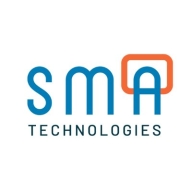

Stonebranch and OpCon are products competing in the automation software category, with Stonebranch offering better pricing and deployment flexibility while OpCon is recognized for its user-friendly automation features.
Features:Stonebranch provides robust automation capabilities, allowing seamless integration across various systems. It facilitates Java creation between tasks and UNIX application integration, enhancing multi-server workflow automation. Users value its scheduling flexibility and intuitive GUI. OpCon excels in self-service features that enable non-IT users to trigger automation tasks easily. It integrates well with Symitar and supports multi-platform mainframe integrations, empowering departments with direct process management.
Room for Improvement:Stonebranch users suggest better graphical workflow overviews, improved FTP task functionality, and more robust integration tools for real-time interfacing. OpCon users find its learning curve challenging and emphasize the need for enhanced support for mainframe functions and broader third-party integration. Both products could improve training materials and customer communication for better usability.
Ease of Deployment and Customer Service:Stonebranch offers multiple deployment options, including on-premises, private, and public cloud environments, with high ratings for responsive technical support. OpCon focuses on on-premises deployments but also supports public cloud. It is known for reliable customer service, despite some feedback about response times. Both companies provide strong technical resources and customer assistance.
Pricing and ROI:Stonebranch is noted for competitive pricing and high ROI, offering a transaction-based pricing model with no additional costs beyond licensing. OpCon tends to be more expensive, with variable pricing depending on chosen features and services, but is still cheaper than hiring additional staff. Users find OpCon's costs justified by its automation benefits, despite concerns over pricing model shifts. Both products deliver positive ROI, with significant savings and efficiency improvements noted by users.
| Product | Market Share (%) |
|---|---|
| OpCon | 1.8% |
| Stonebranch | 4.5% |
| Other | 93.7% |


| Company Size | Count |
|---|---|
| Small Business | 16 |
| Midsize Enterprise | 29 |
| Large Enterprise | 19 |
| Company Size | Count |
|---|---|
| Small Business | 1 |
| Midsize Enterprise | 5 |
| Large Enterprise | 22 |
OpCon enhances automation with features like auto-scheduling and Corelation KeyStone integration, empowering users with self-service capabilities. Its intuitive interface and flexibility boost productivity, providing reliable automation and efficient file transfers.
OpCon is a powerful automation platform known for streamlining operations through features like auto-scheduling and robust integration capabilities. It facilitates seamless automation, allowing users to execute tasks without direct environment access and simplifies job dependencies. Users benefit from self-service capabilities, which enable easy task execution by non-IT staff, reducing errors and human intervention. With its modern interface, OpCon supports efficient file transfers and integrates effectively with multiple systems, enhancing productivity. While offering significant scalability, OpCon users suggest improvements in web functionality, script-writing, and graphical displays, along with enhancements in user authorization and notification systems. There is also a need for better template management, clearer logging, improved mobile accessibility, and expanded training resources.
What are OpCon's Key Features?OpCon is widely used in industries like financial services, where automation and scheduling tasks are critical. Financial institutions rely on OpCon for core processing tasks, including reporting, automated workflows, and vendor file exchanges. The platform handles high volumes of jobs across platforms, ensuring efficient operations and reducing reliance on manual processes.
Stonebranch automates enterprise-level workload and task scheduling across platforms like Linux, Windows, and mainframe, managing thousands of daily tasks for improved efficiency and visibility.
Stonebranch enables organizations to streamline job scheduling by replacing older systems with a robust solution that automates complex workflows, batch processing, and secure file transfers. Its compatibility with multiple platforms and enhanced visibility aid teams in efficiently managing business processes, database interactions, and IT workflows. Equipped with a Universal Controller and Agent, it provides seamless integration across diverse systems, empowering users with greater control over their tasks. While it fosters digital transformation, there are opportunities for enhancements in areas like graphical workflow overviews and API functionality.
What features does Stonebranch offer?Organizations in industries such as finance and healthcare implement Stonebranch for its ability to automate complex processes, manage mainframe and distributed environments, and securely transfer sensitive data. Its platform-agnostic nature caters to the demanding needs of these industries, providing a reliable backbone for essential operations.
We monitor all Workload Automation reviews to prevent fraudulent reviews and keep review quality high. We do not post reviews by company employees or direct competitors. We validate each review for authenticity via cross-reference with LinkedIn, and personal follow-up with the reviewer when necessary.